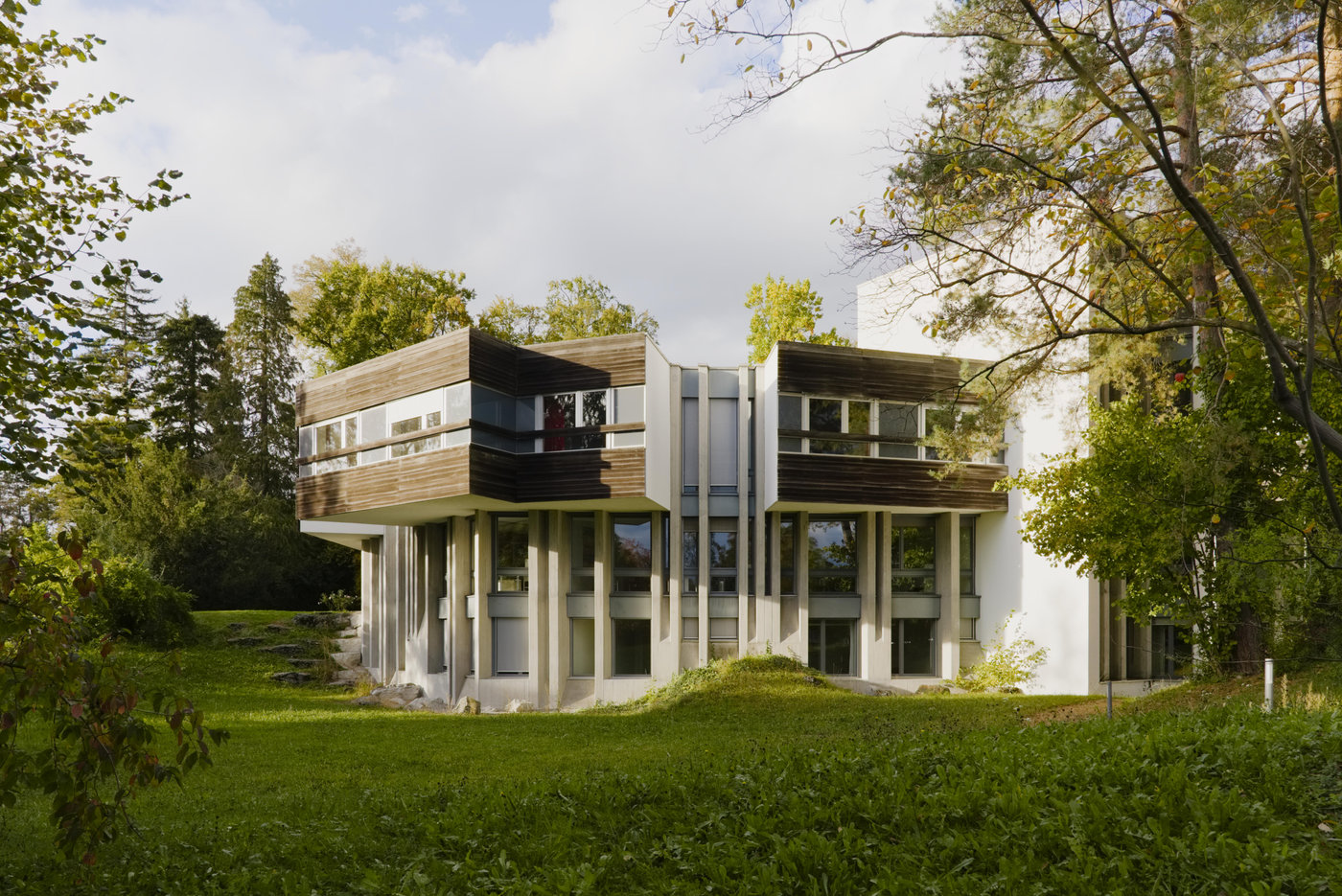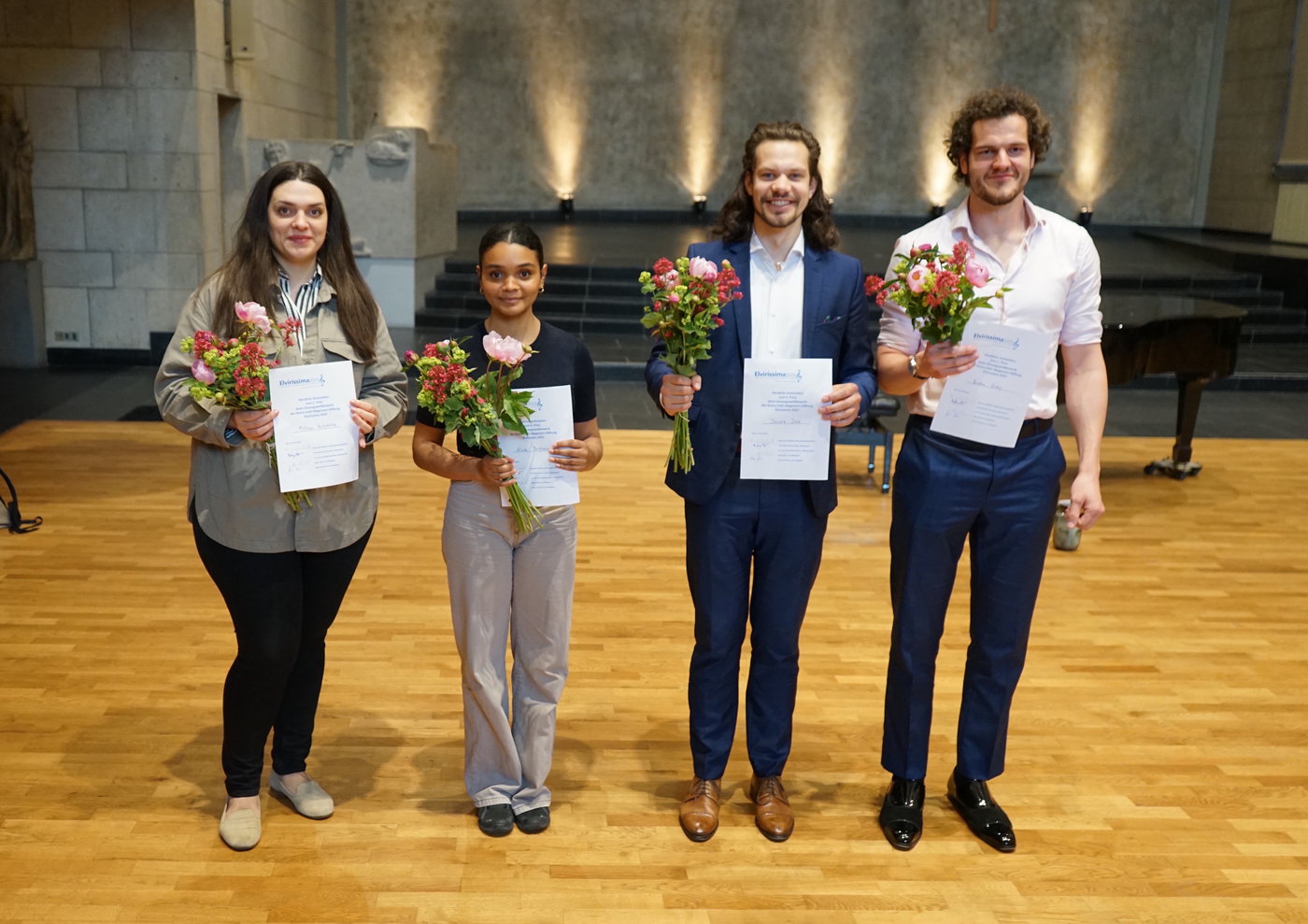Student members of the SMPV
Since 2017, the SMPV has also been accepting students into the association, provided they are studying for a Master's degree in classical or rock/pop/jazz pedagogy. - What do our student members value about the SMPV, what do they expect from the association?
In response to my very last-minute request to the student members, three of them spontaneously took the time to answer a few questions over the phone or via Zoom. Coincidentally, all three are flautists and they all study at the HKB:
Dominique Bircher is in her first year of a Master's degree in education. In January, she was elected to the board of the SMPV Bern, making her the first student member of the board of a section of the SMPV. Her letter of motivation included the following: "For me, teaching is not just a way of teaching music to children. Above all, I am learning to be the best possible teacher for myself, hopefully for the rest of my life."
Lea Mirjam Hitz is studying for a Master's degree in Performance, has just successfully completed her Master's degree in Pedagogy and is looking forward to becoming a full member and finally getting a profile on mein-musikunterricht.ch. She already teaches at the Murgenthal Music School.
Édua Nyilas was born in Hungary, but has lived in Switzerland since completing her Bachelor's degree. She works as a flute teacher, choir director and school musician to finance her Master's degree in education.
What motivated you to become an SMPV member?
Lea: I was recruited by a professional colleague who is a member herself. And of course I already knew the important and useful tariff lists. And I'm also interested in the private tuition platform.
Dominique: A colleague drew my attention to the association. For me, it is particularly interesting to network with other music teachers and to be able to make contacts in the world of professional musicians. And I appreciate the opportunity to help shape things.
Édua: I kept seeing SMPV material from lecturers and then did some research on Google. There I immediately discovered the two very professionally made platforms.
Which SMPV services do you already use and which do you want to benefit from soon?
Dominique: I have a profile on rent-a-musician.ch, took part in a training day and was able to benefit from legal advice once. I would soon like to have my students perform in music lessons.
Édua: I also have a profile on rent-a-musician.ch, I'm glad that the tariff lists exist and I'll certainly make use of the music lessons. I'm interested in the training days, but they're too expensive for me at the moment.
Lea: Soon I can have a profile on mein-musikunterricht.ch and I'm also interested in the other platform. I would like the list of rates to include other lesson lengths and that there are also rates for group lessons.
What do you expect from the SMPV in trade union and political terms?
Édua: The SMPV should work to ensure that only teachers with professional artistic and pedagogical training are employed at music schools.
Dominique: In general, it should stand up for the rights of professional music teachers. If we join forces, our concerns will carry more weight.
Lea: It is important that he opposes dumping prices in music lessons.
What are the most pressing problems in your everyday student and professional life and how could the SMPV help?
All: Although we have vocational training, we still know very little about what we need to do in practice in the transition from studying to working life. When and where do we have to register for which social insurance, what do we need to become (partially) self-employed, how do we apply to music schools and questions like that. A leaflet or even a course from the SMPV for newcomers to the profession would be great.
Dominique: A list of which foundations we could write to for what would also be helpful. After all, it's not unimportant to know how we can finance our lives.
Édua: Exactly, because we have to work alongside our studies to finance it, there is even less time for practicing on the instrument, and we already have far too many subjects anyway, so it's almost impossible to manage everything.
Lea: Perhaps the SMPV could support us in our search for affordable teaching and practice venues.
Thanks for the suggestions! We can certainly offer such a course. If you have specific questions, you can always contact the presidiums and offices of your sections and the central association! You can search for rooms and fellow musicians in the Marché on smpv.ch.
If you could wish for anything, what else could the SMPV ideally offer you?
Dominique: I dream of a coworking space in every major city where we could meet musicians from the professional world and make contacts with them. And perhaps a slightly more realistic wish: it would help us if the SMPV could support us in our search for practice students.
Lea: The SMPV should intensify its contact with the universities.
Édua: Exactly, it should be closer to the students.






 Winterthur Conservatory Photo by Oliver Pailer
Winterthur Conservatory Photo by Oliver Pailer